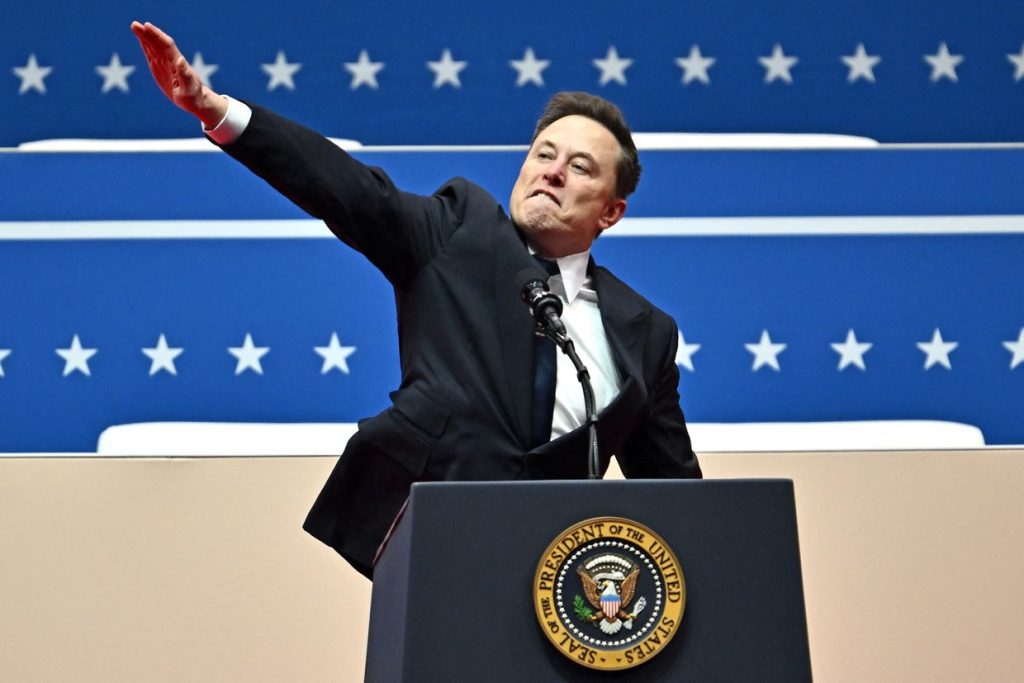Elon Musk and Donald Trump’s Push for Government Efficiency: A Controversial Agenda
The collaboration between Elon Musk and former U.S. President Donald Trump has taken center stage in a controversial push to uncover and eliminate what they claim is widespread fraud and wasteful spending within the U.S. federal government. Trump, in a recent interview with Fox News, expressed confidence that Musk, head of the Trump-established Department of Government Efficiency (DOGE), would uncover billions of dollars in fraudulent and inefficient expenditures, particularly within the Department of Defense. Musk, the world’s richest man, has already made significant moves in his role, including mass government layoffs and drastic cuts to humanitarian aid, actions that Trump has praised as "terrific." The former president has even suggested expanding Musk’s mandate to other federal agencies, such as the Department of Education, promising that similar patterns of abuse and financial mismanagement will be found there as well.
The Targeting of USAID and Foreign Aid
One of the most contentious aspects of this initiative has been the focus on the U.S. Agency for International Development (USAID), America’s primary foreign aid distributor. Trump and Musk have jointly called for the shutdown of USAID, with Musk labeling the agency "a criminal organization." This move has sparked significant concern, as USAID plays a critical role in global humanitarian efforts, including reconstruction projects in Ukraine amid the ongoing conflict with Russia. The agency also supports initiatives aimed at providing clean water, energy security, and anti-corruption programs worldwide. Despite these crucial functions, the Trump administration has frozen all foreign aid for 90 days and plans to significantly reduce USAID’s global workforce. Critics argue that these actions threaten to undermine the U.S.’s ability to support vulnerable populations and maintain its influence on the global stage.
The Future of U.S. Military Support for Ukraine
The rhetoric and actions of Trump and Musk have also raised alarms about the future of U.S. military support for Ukraine. The country has relied heavily on American weapons packages to defend itself against Russia’s invasion, but these resources are nearing depletion. Neither Trump nor Congress has approved new arms shipments to Kyiv, leaving Ukraine’s military in a precarious position. Musk’s efforts to slash funding at the Pentagon have only intensified concerns about the long-term sustainability of U.S. military aid to Ukraine. This comes at a time when Russia’s aggression shows no signs of abating, and Ukrainian forces are in dire need of continued support to hold their ground.
Calls to Shut Down U.S.-Funded Media Outlets
In addition to their focus on government spending, Musk has also targeted U.S.-funded media outlets, such as Radio Free Europe and Voice of America, calling for their shutdown. Musk dismissed these organizations as outdated and wasteful, claiming that they no longer serve a meaningful purpose and instead cater to "radical left crazy people" while squandering $1 billion annually in taxpayer funds. This stance has drawn criticism from advocates of press freedom, who argue that these outlets play a vital role in promoting democratic values and providing independent journalism in regions where press freedom is under threat. The push to defund these organizations raises concerns about the erosion of U.S.-backed initiatives that support global democracy and human rights.
The Broader Implications of Trump and Musk’s Agenda
The efforts of Trump and Musk to reshape the federal government and its budget have far-reaching implications that extend beyond immediate financial concerns. Their focus on rooting out fraud and waste, while appealing to some voters, has been criticized for lacking evidence and for targeting critical institutions that play essential roles in both domestic and international affairs. The mass layoffs and funding cuts championed by Musk have already begun to impact the government’s ability to function effectively, raising questions about the long-term consequences of such drastic measures. Furthermore, the prioritization of certain agencies and programs over others reflects a broader shift in the political landscape, one that could have lasting effects on the U.S.’s role in global affairs and its commitment to humanitarian causes.
A Divisive and Uncertain Future
As the collaboration between Trump and Musk continues to unfold, the future of U.S. governance and international relations remains highly uncertain. While the duo’s push for greater efficiency and accountability may resonate with some, it has also sparked widespread criticism and concern. The potential shutdown of vital institutions like USAID and the defunding of critical media outlets threaten to undermine the U.S.’s ability to support global stability and promote democratic values. The lack of evidence to support claims of widespread fraud and abuse has only added fuel to the fire, with many questioning the motivations behind these sweeping changes. As the debate over government spending and efficiency intensifies, one thing is clear: the actions of Trump and Musk are reshaping the U.S. government in ways that will have far-reaching and potentially irreversible consequences.












